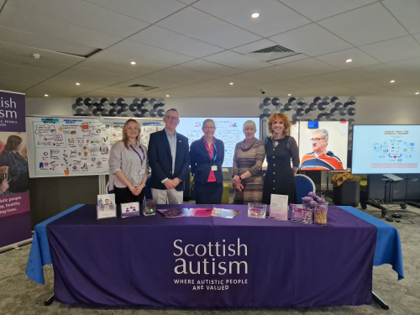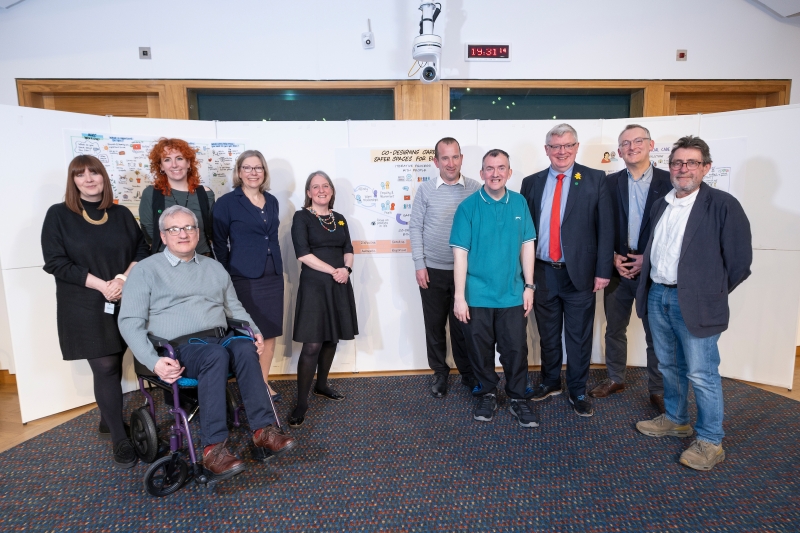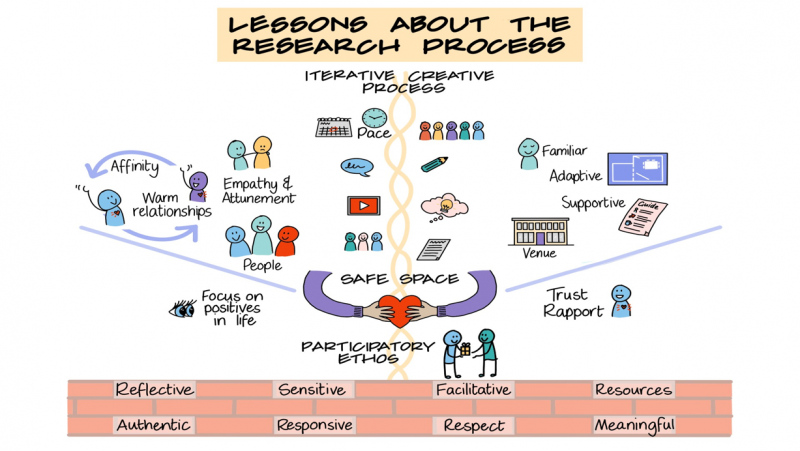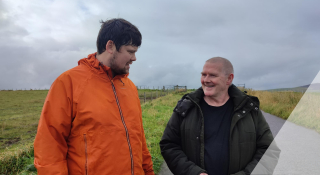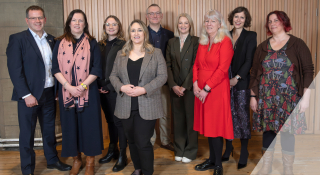Autism, Ageing and Social Care
A Heriot-Watt University & Scottish Autism Project
Autism, Ageing and Social Care
Scottish Autism and Heriot-Watt University are currently undertaking a collaborative research project on Autism, Ageing and Social Care. The project has employed creative methods to understand the hopes, concerns, and future care needs of autistic people as they get older. It is funded by the Arts and Humanities Research Council, Part of the UK Research and Innovation funding body (UKRI).
The project is led by Professor Mary Stewart at Heriot-Watt University and Dr Joe Long at Scottish Autism. Bryony Nisbet (Heriot-Watt) and Dr Kirsty Ainsworth (Scottish Autism) are also working on the project. The project has a strong emphasis on co-production. Working with Iceberg Productions, a group of autistic film-makers supported by Scottish Autism and The Untold Film company, the team has produced two films in which autistic people share their feelings about what is important to them as they get older. Emma Stanley, a member of the Iceberg team acted as a Co-researcher and interviewer. Emma sadly passed away shortly after filming was complete. The work stands as a fitting legacy to her contribution and passion for this issue.
A series of workshops with autistic people and support professionals used the films to start conversations about ageing and care and created a series of visual illustrations on the topic, facilitated by Clare Mills of Listen, Think, Draw.
The team are using the works to begin a broader conversation about support provision in older age with individuals, support professionals, care providers and policy-makers. This has included workshops for Autism Europe and the Royal Society of Edinburgh.
The films and artwork were launched with a reception at the Scottish Parliament on 19th March 2025, hosted by Martin Whitfield MSP with contributions from Maree Todd, Minister for Social Care, Mental Wellbeing, and Sport.
The Films
Film 1: Researching Together
This film reflects on the research process used in the project and the importance of the topic.
Film 2: Beginning the Conversation
The second film features interviews with adults supported by Scottish Autism.
The Artworks
The three art works below were created in workshops with autistic people and support professionals. Drawing as conversations unfolded allowed participants to reflect as they went along, process the information created and to build upon it to agree upon what made a good life, how people would deal with change as they got older, and what support they would need as they did so.
Publications
The works will feature in forthcoming publications about the project. Details will be provided on this page when publications become available.
Recommendations
As a result of the work we have undertaken, we are making the following recommendations to service providers and policy-makers:
- Timely, multi-agency planning for transitions across the lifespan, including the transition to older age
- Tools and resources to support autistic people to co-design their care as they age
- Holistic, inclusive care pathways in older age, incorporating multi-disciplinary collaboration
- Data, transparency, and accountability regarding support provision and outcomes for older autistic people in order to maximise learning

